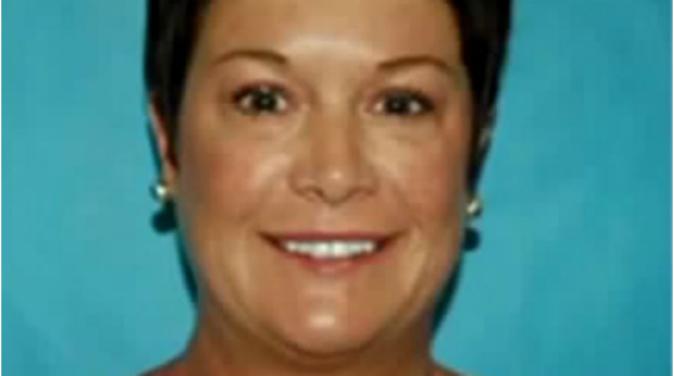The students at Charles L. Spain Elementary-Middle School in Detroit are not participating in much physical education—school conditions don’t allow for it.
A faulty roof leaked rainwater onto the gymnasium floors in October last year resulting in buckled wood flooring and mold.
The 538 students attending Spain have taken to running in the hallways to try and meet the exercise standard set by The Institute of Medicine—at least 60 minutes of moderate-intensity physical activity a day.
Ivy Bailey, interim president of the Detroit Teacher Federation, said the condition of the city’s classrooms vary wildly.
“We have those classrooms where everything is just great, it’s warming and inviting and schools smell great, like lavender. And you have technology and all these resources that you need,” Bailey said.
“But on the other spectrum, we just have schools that are just disrepair.”
Detroit public schools are a microcosm of the multitude of schools throughout the nation that are in disrepair and desperate for renovation. Renovations in physical appearance, in quality education, and in teacher support.
Renovations that presumptive Democratic presidential nominee Hillary Clinton says she will tackle.
“I have this old-fashioned idea that when we are making decisions about education, we actually should listen to our educators,” Clinton said at the National Education Association (NEA) conference on July 5. Clinton unveiled the plan she hopes will improve America’s dismal academic ranking.
A 2012 assessment revealed that 15-year-olds in the United States ranked 27th in math, 17th in reading, and 20th in science among 34 Organization for Economic Co-operation and Development (OECD) countries.
“It also means repairing our crumbling schools, building new modern schools; investing in the training and support that our educators deserve to have, because when we invest in education, we invest in our country’s future and we invest in making a stronger economy that works for all of us, not just those at the top,” Clinton said.
Research has shown the positive correlation between quality early education and economic growth. A report released by the White House in December 2014 highlighted the importance of quality education from a very early age and how that foundation will subsequently strengthen both the state and overall national economy.
Salary Hike
Clinton also told the NEA she wants to increase salaries. “No educator should have to take a second or third job just to make ends meet.”
Efforts to revamp testing would include taking testing back to its original purpose—an indicator of student performance for parents and teachers.
The average student enrolled in any U.S. public school takes 112 mandatory standardized exams between pre-kindergarten and the end of 12th grade, according to a study by the Council of the Great City Schools released in October 2015.
Organizations such as FairTest, a national organization that opposes excessive testing, say such heavy testing tactics only damage public education by taking time away from learning, as well as narrowing the curriculum. Although it doesn’t endorse candidates, FairTest welcomes Clinton’s overhaul.
“We have long maintained that testing should be overhauled to support learning and teaching,” said Bob Schaeffer, public education director for FairTest. “That means eliminating high-states, standardized exams, reducing the number of government-mandated tests, and (re-)designing accountability systems so they are based primarily on reviews of ongoing student work designed by local educators. We encourage all candidates to support such assessment reforms.”
As Clinton formulates plans to ensure academic prosperity for every child “no matter what zip code they live in,” the former secretary of state is open to ideas from success stories, including charter schools.
The mention of charter schools by Clinton led to jeers from the crowd of public school education union members.
“In so many of our communities, charter schools have devastated school funding,” NEA President Lily Eskelsen García told EdWeek. “For us, the anger comes from the growing franchise of for-profit charters.”
However, Chief of Staff of National Alliance for Public Charter Schools, Eric Paisner is in agreement with Clinton. Paisner, who wants the next president to continue to foster the growth of high-quality charter public schools, believes if the solutions of academic achievement and growth are found in charter schools, they should be used in all schooling.
“All children deserve access to a high-quality public school, and in too many communities across the country, those schools do not exist. Charter public schools provide families with another option for educating their child,” Paisner said. “Parents, whether they send their children to a charter public school or a traditional public school, should always consider multiple factors, including academic achievement and growth, as well as school climate, when determining whether a school is the right fit for their student.”
He added, “Charter schools are given additional flexibility in exchange for stricter accountability for student results. This gives them the ability to look for innovative solutions to common issues in education.”
Endorsement
The 3 million-member National Education Association endorsed Clinton for president in October last year. Garcia called Clinton a “strong leader who will do what is best for America’s students.”
Cody-Detroit Institute of Technology College Prep High School is one of the schools Clinton intends to advocate for—it has no internet, despite boasting technology in its name.
Michigan Gov. Rick Snyder signed a $617 million bailout for Detroit’s Public Schools (DPS) on June 21, granting students a new opportunity for academic success.
“This marks a new day for Detroit families, with DPS free from debt and strong accountability measures for all schools in the city that promises a brighter future for all of Detroit’s children,” Snyder said in a press release.
For Ivy Bailey, whoever becomes president whether Clinton or Donald Trump, real education reform should be the main priority.
“Especially for the city of Detroit that’s trying to have a comeback, I don’t think we can be a great city and have a great comeback and a consistent and successful comeback unless we have a great school system,” Bailey said. “So I believe, the key to our city totally coming back 100 percent and remaining that way is our school system.”




